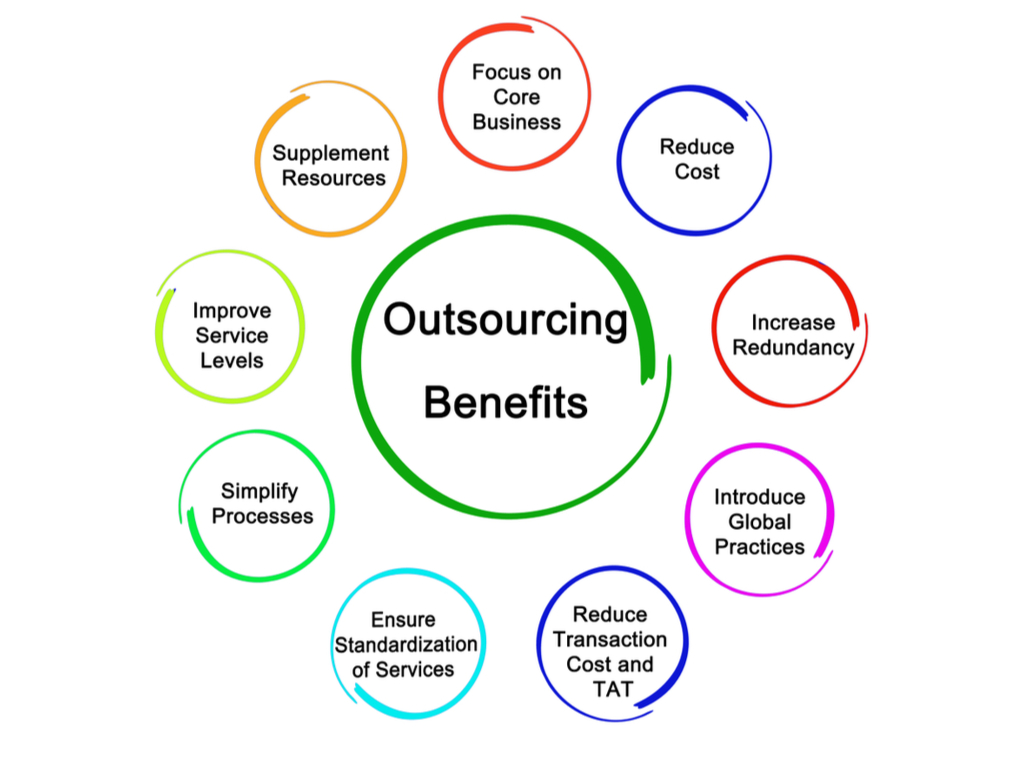Benefits of Outsourcing: Enhancing Business Efficiency
In today’s highly competitive business landscape, organizations are constantly seeking ways to optimize their operations and gain a competitive edge. One approach that has gained significant popularity is outsourcing. By delegating certain tasks or functions to external service providers, businesses can focus on their core competencies while benefiting from specialized expertise and cost savings. In this article, we will explore the numerous advantages of outsourcing and how it can help businesses thrive in a rapidly evolving marketplace.
Increased Cost Savings
One of the primary advantages of outsourcing is the potential for cost savings. By outsourcing non-core functions, businesses can reduce overhead expenses associated with hiring and training in-house staff, acquiring equipment, and maintaining infrastructure. External service providers often operate at a lower cost due to economies of scale, enabling businesses to access high-quality services at a fraction of the cost. Additionally, outsourcing eliminates the need for long-term investments, allowing businesses to allocate resources more efficiently and adapt to changing market conditions.
Access to Specialized Expertise
Outsourcing provides businesses with access to specialized expertise that may not be available internally. Service providers often have extensive experience and knowledge in their respective fields, allowing them to deliver superior results. Whether it’s IT support, marketing, customer service, or accounting, outsourcing enables businesses to tap into a vast pool of talent and benefit from the latest industry best practices. This access to specialized expertise can significantly enhance business efficiency and productivity.
Focus on Core Competencies
By outsourcing non-core functions, businesses can redirect their focus and resources towards their core competencies. This strategic shift allows organizations to concentrate on activities that directly contribute to their value proposition and competitive advantage. Instead of spreading themselves too thin by trying to handle every aspect of their operations, businesses can leverage outsourcing to streamline processes, improve efficiency, and drive innovation. By focusing on core competencies, businesses can position themselves as industry leaders and deliver exceptional value to their customers.
Improved Flexibility and Scalability
Outsourcing offers businesses the flexibility to scale their operations based on fluctuating demands. During peak periods or when additional resources are required, businesses can easily tap into the capabilities of external service providers. This scalability allows organizations to respond quickly to market changes, seize new opportunities, and meet customer expectations without the need for significant upfront investments. Outsourcing also provides businesses with the agility to adapt to evolving technologies and industry trends, ensuring they remain competitive in a dynamic business environment.
Enhanced Risk Management
Outsourcing can help businesses mitigate risks by sharing them with external service providers. Service level agreements (SLAs) and contracts define the expectations and responsibilities of both parties, ensuring accountability and minimizing potential risks. Additionally, outsourcing can help businesses navigate complex regulatory environments and ensure compliance with industry standards. By entrusting certain functions to specialized service providers, businesses can reduce the impact of risks and enhance overall risk management strategies.

Outsourcing presents numerous benefits that can significantly enhance business efficiency and competitiveness. From cost savings and access to specialized expertise to improved flexibility and risk management, outsourcing allows businesses to optimize their operations and focus on their core competencies. By leveraging the advantages of outsourcing, organizations can position themselves for long-term success in a rapidly evolving marketplace. Embracing outsourcing as a strategic business tool is a decision that can drive growth, innovation, and sustainable success.
Frequently Asked Questions about the Benefits of Outsourcing
What is outsourcing?
Outsourcing is the practice of hiring a third-party company or individual to perform certain tasks or services that were traditionally done in-house.
What are the benefits of outsourcing?
Outsourcing offers several benefits, including cost savings, access to specialized expertise, increased efficiency, and the ability to focus on core business activities.
How can outsourcing help reduce costs?
By outsourcing certain tasks, businesses can save on expenses such as employee salaries, benefits, office space, equipment, and training.
What types of tasks can be outsourced?
Various tasks can be outsourced, including customer support, IT services, accounting, marketing, data entry, and manufacturing.
Can outsourcing improve the quality of services?
Yes, outsourcing allows businesses to access specialized expertise and resources, leading to improved service quality and customer satisfaction.
Is outsourcing only suitable for large companies?
No, outsourcing can benefit businesses of all sizes. Small and medium-sized enterprises can particularly benefit from outsourcing as it allows them to access expertise and resources they may not have in-house.
What are the risks associated with outsourcing?
Some potential risks include language barriers, cultural differences, security concerns, and the possibility of losing control over certain aspects of the business.
How can I select the right outsourcing partner?
When choosing an outsourcing partner, consider factors such as their experience, expertise, reputation, communication skills, and ability to meet your specific requirements.
Can outsourcing lead to job losses?
While outsourcing may result in the elimination of certain in-house positions, it can also create new job opportunities and help businesses grow, leading to overall employment growth.
How can I measure the success of outsourcing?
Key performance indicators (KPIs) can be used to measure the success of outsourcing, such as cost savings, improved efficiency, increased customer satisfaction, and business growth.




